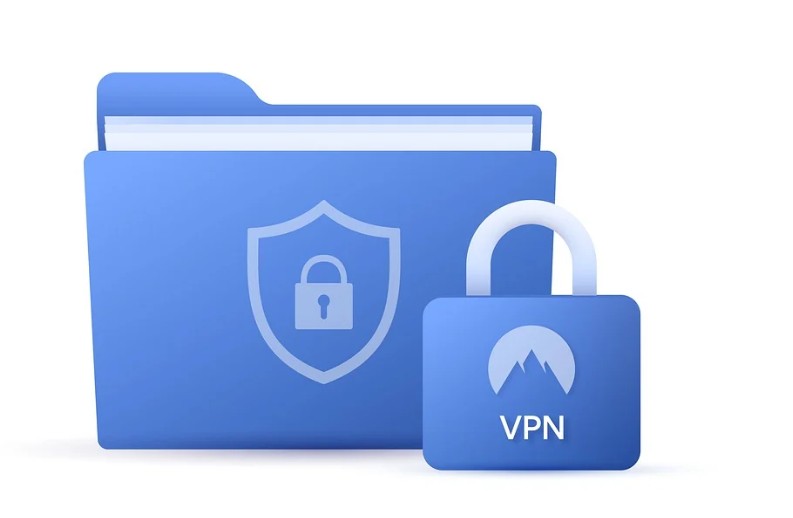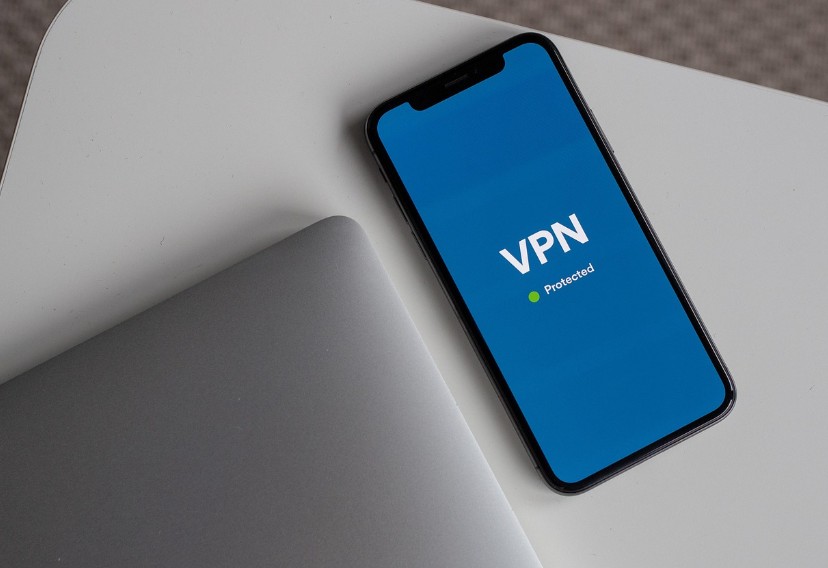Free VPN are a go-to for online privacy, secure browsing, and unblocking content. But are they enough? This guide covers setup, benefits, and what to avoid.
A VPN (Virtual Private Network) is a secure tunnel that hides your IP, encrypts data, and lets you access blocked content by routing your traffic through remote servers.
VPNs are commonly used for privacy, avoiding censorship, and securing connections on public Wi-Fi. VPN technology works by routing your traffic through remote servers, often located in other countries.
This makes it appear as if you’re browsing from that region, helping with streaming, bypassing geo-blocks, and maintaining online anonymity.
Top 5 Best Free VPNs
These free VPNs strike the right balance between privacy, usability, and fair usage limits—ideal for casual browsing, testing, and basic online protection.
1. Proton VPN
Proton VPN is a top pick for users who want unlimited data without paying. It’s built by scientists behind ProtonMail and follows a strict no-logs policy, strong AES-256 encryption, and operates under Swiss privacy laws.
While free users have access to only a few server locations, it’s perfect for secure, everyday browsing.
- Best for: Unlimited secure browsing
- Downside: No torrenting or streaming on the free plan
2. Windscribe
Windscribe’s free plan gives you 10GB/month (more with bonuses like confirming your email), along with ad blocking, a firewall, and browser extensions.
It supports P2P traffic, and some free servers can access streaming platforms. Windscribe also publishes transparency reports and maintains a solid privacy record.
- Best for: Feature-packed free VPN with flexibility
- Downside: Some features are locked behind the paid plan
3. TunnelBear
TunnelBear stands out for its simple interface and fun design, perfect for VPN newbies. You get 500MB/month, strong AES-256 encryption, and a clear no-logs policy.
While the data cap is low, it’s great for quick tasks like checking emails or using public Wi-Fi securely.
- Best for: Beginners and light VPN users
- Downside: Very limited data allowance
4. Hide.me
Hide.me offers 10GB/month, with support for torrenting, multiple VPN protocols (like WireGuard), and a kill switch even in its free tier.
It doesn’t log user data and includes advanced features rarely seen in free plans. Its speeds are respectable, and it’s suitable for privacy-conscious users.
- Best for: Security features and torrent support
- Downside: Fewer server choices on the free plan

5. PrivadoVPN
PrivadoVPN gives 10GB/month, AES-256 encryption, and access to servers in 12 locations. It’s based in Switzerland, ensuring strong privacy laws and a no-logs guarantee.
Some users have access to streaming platforms like Netflix on the free plan, which is rare for free VPNs.
- Best for: Streaming and secure browsing
- Downside: Limited server access for free users
Why People Often Choose Free VPNs?
A free VPN is a popular choice for anyone wanting to stay safe online without spending money. It was built to offer the basics—like hiding your IP address and encrypting your connection—without the commitment of a paid plan.
People often turn to free VPNs to unlock region-restricted content, such as Netflix libraries or blocked websites.
They also use them to stay anonymous while browsing or to protect their personal data on public Wi-Fi, like in cafes or airports. Plus, it can be a simple way to try out a VPN before deciding whether to upgrade.

That said, not all free VPNs are built the same. Many come with limits—like slower speeds, monthly data caps, fewer server options, or even ads that interrupt your experience. Some may also log your data, which goes against the privacy you’re looking for.
A free VPN is popular because it is easy to try, can unblock content, and can protect data, but it can also slow speeds or risk your privacy.
How to Download a Free VPN Safely?
Always download VPNs from official sites or trusted app stores, pick the right OS version, install carefully, and avoid third-party sources for safety.
Step-by-Step Guide:
- Visit the Official Website or Trusted App Store
- Always download your VPN directly from the provider’s website or a verified app store (Google Play, Apple App Store) to avoid unsafe or fake versions.
- Select the Right Version for Your Device
- Free VPNs typically support major platforms—Windows, mac OS, Android, iOS, and sometimes Firestick or browser extensions.
- Click “Download” and start the Installation
- Follow the on-screen prompts to install. No technical skills needed—just basic setup like choosing a location or creating a free account.
- Launch and Connect to a Server
- Once installed, open the VPN app, choose a server (if available on the free plan), and connect. Your connection is now encrypted.
Safety Tip:
Avoid downloading cracked or “modded” VPN APKs or installers from third-party sites. They may expose you to malware, phishing risks, or data theft.
How to Install a VPN on Different Devices?
Install the VPN from your app store, log in, allow permissions, and connect. Firestick may require sideloading if the VPN isn’t in the Amazon App Store.
For Firestick
- Go to Firestick Home > Search.
- Type the VPN name (e.g., Proton VPN).
- Download and install the app.
- Log in and connect.
- If not on Amazon Store, sideload the APK using the Downloader app.
- Consider enabling Always-on VPN if supported.
For Android Devices
- Open the Google Play Store and search for the VPN.
- Install, sign in, and grant permissions.
- Tap Connect to activate.
- For continuous protection, enable Always-on VPN and block non-VPN traffic in settings.
For iPhone & iOS Devices
- Open the App Store and search for your VPN.
- Tap Get, install, and open the app.
- Follow setup and allow VPN configuration in settings.
- VPN can be toggled from iOS Settings or the app.

Do Free VPNs Offer the Same Level of Protection as Paid VPNs?
No, free VPNs don’t match paid ones—most lack full security, speed, servers, and support, and some may log or sell your data, risking your privacy.
Some free VPNs like Proton VPN offer good encryption, but most come with limits—low speed, capped data, and fewer security tools.
Many also lack a kill switch, DNS leak protection, and offer minimal or no customer support. Worse, some may track or sell your data, putting your online privacy at risk.
Paid VPNs like NordVPN or ExpressVPN provide full protection: faster speeds, unlimited bandwidth, and strong privacy features. For serious data security and a seamless experience, paid VPNs are the safer bet.
The Real Advantages and Disadvantages of Free VPNs
Free VPNs can be useful for light browsing and basic privacy, but they come with serious trade-offs in speed, security, and reliability.
Pros
- Zero Cost – Ideal for budget users or first-timers trying VPNs.
- User-Friendly – Simple setup, easy apps for beginners.
- Decent for Testing – Great for trying VPNs before going premium.
- Basic Privacy – Offers IP masking and encryption for casual use.
Cons
- Data & Speed Limits – Often capped bandwidth and slow speeds.
- Limited Servers – Fewer locations, harder to unblock content.
- Privacy Risks – Some log and sell your data to stay “free.”
- Ads & Upsells – Interruptions and pushy upgrade prompts.
- Missing Features – Lacks kill switch, torrenting, or full protection.
Free VPNs are good for short-term or low-risk use. For full privacy, better performance, and advanced features, a paid VPN is worth considering.
Free VPNs can be incredibly useful for casual browsing, securing public Wi-Fi, or testing VPNs before purchasing. But not all free VPNs are trustworthy. Always prioritize privacy policies, security standards, and user transparency.
If you’re serious about online security and need features like streaming support and faster speeds, a premium VPN is usually worth the investment.
Overall Comparison
We have compared the key features of the above-mentioned top five VPNs below. You can also refer the checklist we provided below before choosing a VPN other than our top five picks.
| Checklist / VPN | ProtonVPN | Windscribe | TunnelBear | Hide.me | Atlas VPN |
|---|---|---|---|---|---|
| Free Plan Availability | Yes | Yes | Yes | Yes | Yes |
| Monthly Data Limit | Unlimited | 10 GB¹ | 500 MB | 10 GB | 5 GB |
| No-Logs Policy | Yes | Yes | Yes | Yes | Yes |
| Kill Switch Feature | Yes | Yes | No | Yes | Yes |
| Streaming Support (Free Plan) | No | Yes² | No | Yes | Limited³ |
| Torrenting / P2P Support | No | Yes | No | Yes | No |
| Browser Extension (Chrome) | No | Yes | Yes | Yes | No |
| Firestick Compatibility | Yes | Yes | No | Yes | Yes |
| Encryption Standard | AES-256 | AES-256 | AES-256 | AES-256 | AES-256 |
| Best Use Case | Unlimited browsing | P2P & Streaming | Beginners | General use | Casual users |
1 – Windscribe offers 10 GB/month (more with promotions like email confirmation or tweets).
2 – Windscribe supports streaming services like BBC iPlayer, but not Netflix on free servers.
3 – Atlas VPN allows some streaming on free servers, but pushes for an upgrade for full access.
FAQs
Is it legal to use a free VPN?
Yes, VPNs are legal in most countries. However, using them to break local laws remains illegal.
Can I stream Netflix using a free VPN?
Some free VPNs unblock Netflix, but speed and quality may vary.
Is my data safe with a free VPN?
Only if it’s a no-log VPN with strong encryption. Always research before installing.
Can I use a free VPN on multiple devices?
Yes, many providers allow this, but some may restrict simultaneous connections.





